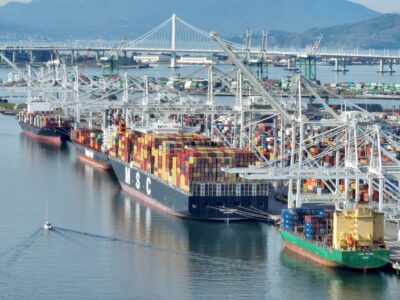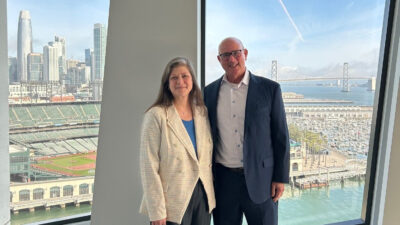Bay Area Council Tackles Early Childhood Education Issue
By Matt Regan
This week the Bay Area Council released a new report that highlights the impressive returns resulting from investments in quality early education.
Perhaps more than any other region in the United States, or even the world, the Bay Area is a knowledge based economy. We do not have giant smoke stacks, miles of assembly lines, or thousands of acres of crops or timber driving our economic engine. Instead we have research laboratories, venture funded start ups, innovative high technology companies and pioneering biotech and cleantech industries. The raw materials for this unique economy are not mined or harvested, they are nurtured; they are our children.
If the Bay Area is to maintain its competitive advantage in the 21st century and stay ahead of other rival metropolitan regions who would seek to succeed us as the world’s innovation leader; regions such as Shanghai, London, Bangalore or Dublin, we need to ensure that the young people entering our workforce have the best possible education and possess all the necessary skills to succeed.
We are currently failing our young people and failing the Bay Area. Our education system is not producing the caliber of graduates necessary to meet the demands of our economy. 20% of Bay Area employees lack even a high school diploma and we cannot continue along this path and expect to remain competitive.
According to Nobel Laureate in Economics, James Heckman, “The best way to improve the American workforce of the 21st century is to invest in early education, to ensure that even the most disadvantaged children have the opportunity to succeed alongside their more advantaged peers.” Early education means the years zero to five. 90% of a child’s brain growth occurs before the 3rd birthday and if that child is not sufficiently stimulated during those early years he/she will enter kindergarten unprepared and will likely never bridge the achievement gap and catch up.
The jury is now in. Investments in high quality educational experiences in the years zero to five significantly improve not only school achievement but also a range of social and economic outcomes throughout life. Skeptics will no doubt ask if we can afford such an investment particularly in these economic times, but the data is very clear; investments in high quality early care and education generate a higher rate of return than almost any other public investment.
There are also immediate or more short term economic benefits to investing in these programs. The availability of quality early care and education programs increases the productivity of today’s workforce, by reducing absenteeism, tardiness and stress related issues.
This is a business issue, one of particular importance to this region, and the Bay Area Council recognizes that fact.





